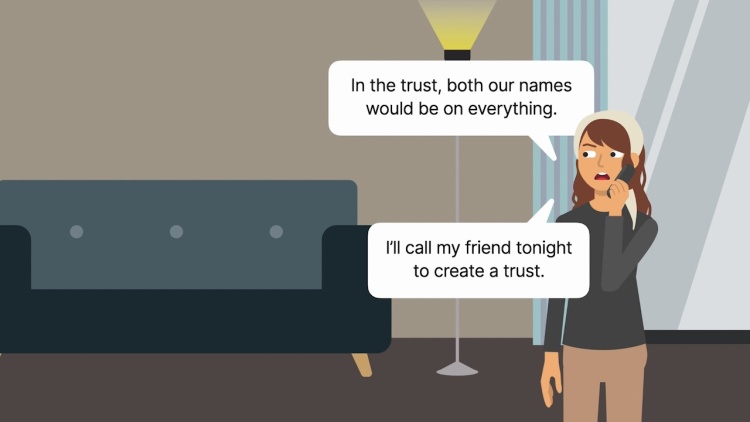Beckwith v. Dahl
California Court of Appeal
205 Cal. App. 4th 1039, 141 Cal. Rptr. 3d 142 (2012)

- Written by Denise McGimsey, JD
Facts
Brent Beckwith (plaintiff) and Marc MacGinnis were in a cohabiting, longtime relationship. MacGinnis’s only living relative was an estranged sister, Susan Dahl (defendant). MacGinnis showed Beckwith a will on his computer in which MacGinnis left his substantial estate to Beckwith and Dahl in equal shares. MacGinnis never executed the will. After MacGinnis was admitted to a hospital in poor health, he asked Beckwith to print the will so that he could sign it. When Beckwith could not locate the will, MacGinnis asked him to create a new one. Using a form, Beckwith created a will by which MacGinnis divided his estate equally between Beckwith and Dahl. Beckwith e-mailed a copy of the will to Dahl, who told Beckwith not to give the will to MacGinnis; she would have an attorney draft trust documents within a couple of days instead. Two days later, MacGinnis underwent surgery. As a family member, Dahl was informed that the surgery was life-threatening. Beckwith was not similarly informed, either by the hospital or Dahl. MacGinnis’s condition worsened after surgery, and Dahl removed him from life support. MacGinnis died intestate. Dahl opened probate and applied to be the administrator of MacGinnis’s estate. Over the next six months, Dahl repeatedly ignored Beckwith’s requests for information about the proceedings, which included statements indicating Beckwith’s expectation that MacGinnis’s estate would be distributed to Beckwith and Dahl equally. Eventually, Dahl told Beckwith that MacGinnis’s entire estate would go to her. The probate judge ruled that Beckwith had no standing to oppose distribution of the estate. Beckwith filed an independent, civil complaint against Dahl, alleging intentional interference with an expected inheritance (IIEI). The trial court sustained Dahl’s demurrer to Beckwith’s complaint on the ground that California law did not recognize IIEI claims. Beckwith appealed.
Rule of Law
Issue
Holding and Reasoning (O’Leary, J.)
What to do next…
Here's why 907,000 law students have relied on our case briefs:
- Written by law professors and practitioners, not other law students. 47,100 briefs, keyed to 996 casebooks. Top-notch customer support.
- The right amount of information, includes the facts, issues, rule of law, holding and reasoning, and any concurrences and dissents.
- Access in your classes, works on your mobile and tablet. Massive library of related video lessons and high quality multiple-choice questions.
- Easy to use, uniform format for every case brief. Written in plain English, not in legalese. Our briefs summarize and simplify; they don’t just repeat the court’s language.





